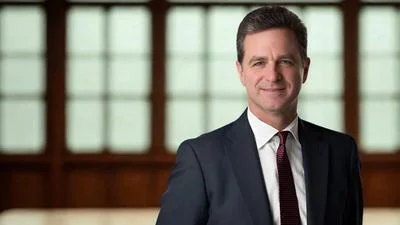No simple solution exists for the budget and economic woes plaguing Illinois, several experts told a House Subcommittee on Property Taxes on Friday.
That includes a property tax freeze, they said.
“Property tax reform must be done responsibly so that we don’t have unintended consequences in just a few years,” Ted Dabrowski, vice president of policy at the Illinois Policy Institute, said. “The current solutions that are being debated are only focused on a property tax freeze. They only address the symptom, and the symptom is the high property taxes, but most of the discussions do not address the cost drivers -- the actual drivers of why property taxes are so high in the first place.”
The subcommittee discussed the potential benefits and drawbacks of a property tax freeze proposed in HB4066.
Illinois' property taxes are higher than every other state except New Jersey. HB4066 is a Republican response that would impose a four-year property tax freeze on the state. Afterward, voters would decide whether they want to change their rates via referendum.
Many businesses and residents in the state are frustrated by their property tax rates, Julie Sullivan, director of legislative and political affairs for Illinois Realtors, testified.
“Representing a statewide association of 44,000 members, we are on the front line talking to property owners and people who are wanting to become property owners every day," she said. "I can tell you … that people are paying very high property taxes and are extremely frustrated about it. My members hear as much as you do from your constituents about that frustration."
While Sullivan supports many aspects of HB4066, she encouraged lawmakers to also look at government consolidation to bring down high property tax rates.
“There are so many taxing districts in the state of Illinois, and we have been very strong supporters of efforts to encourage consolidation of local governments,” Sullivan said. “I think that if we truly want property tax relief, that has to be an element. We have so many taxing bodies that rely on property taxes to fund their operations. If we continue to streamline, consolidate and dissolve units of local governments, that can only help the burden on schools, municipalities and counties.”
Illinois has nearly 7,000 local units of government, the highest in the nation.
“Nearly two thirds of property tax bills go to pay for school districts, and yet we have the fifth-most school districts in that nation,” Dabrowski said. “We are one of the most inefficient in the nation in terms of efficiency with school districts. That has to change.”
Dabrowski also contended that lawmakers need to give local government more power in tax negotiations.
“We have got to let local leaders negotiate better deals for their residents,” Dabrowski said. “Illinois has one of the top-five most-restrictive collective bargaining laws in the nation. Our local government officials’ hands are tied when they negotiate.”
Dabrowski also called for reforms in workers’ compensation and an end to unfunded mandates. Altogether, they are the real cost drivers that raise property taxes, Dabrowski argued.
“A temporary property tax freeze without the local ability to reduce local costs is a very dangerous proposition,” Dabrowski said. “As long as contracts and costs continue to rise, local governments will continue to borrow, underfund pensions, find other taxes and fees until the temporary freeze is done. After the freeze, things will be worse. For that reason, we need comprehensive property tax reform. We must address all the issues; otherwise, we’ll never really get out of this mess.”






 Alerts Sign-up
Alerts Sign-up